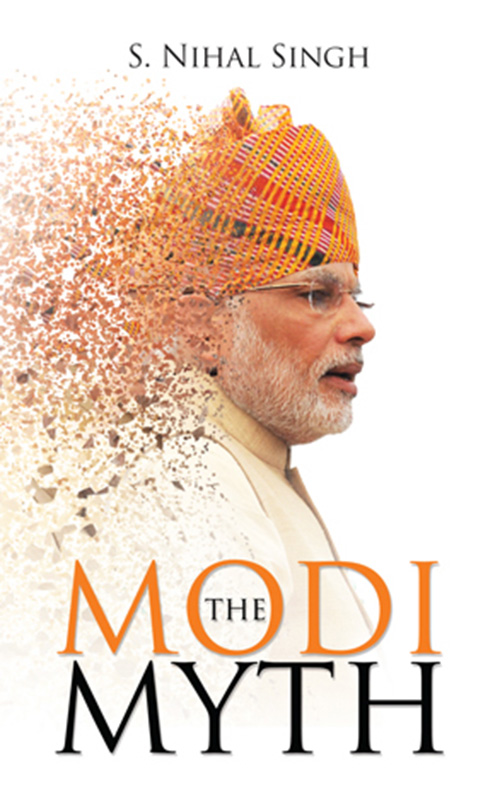The Narendra Modi government’s new scheme to unearth black money kept by Indians outside the country has yielded just about Rs 4,147 crore from 638 declarations. On average, this figure works out to a relatively small amount of Rs 6 crore per declaration — either about holding assets abroad illegally or earning income outside the country which has not been disclosed. Nearly two-thirds of this money, or Rs 2,488 will come to the exchequer by way of taxes. This measly sum is a clear indication that large holders of black money chose not to comply with the three-month-long immunity scheme that ended on the last day of September.
Contrary to expectations, there was no last minute rush to apply for the immunity scheme. The scheme, which received a rather lukewarm response despite a fair amount of publicity that was given to it, came as part of the Undisclosed Foreign Income and Assets (Imposition of Tax) Act that was passed by both Houses of Parliament in May.
That the law and the disclosure of income scheme under it would have, at best, a marginal impact on the huge problem of black money in the country was anticipated by the government’s critics. Still, Union finance minister Arun Jaitley sought to downplay the response to the disclosure scheme. He and top officials in his ministry, including economic affairs secretary Shaktikanta Das, held out threats that the tax authorities would now crack down hard on those Indians who have illegally stashed away income and undeclared assets abroad. However, these threats sound like bluff and bluster.
To come to the basic question, why was this ineffective law enacted in the first place? In the run-up to the 2014 elections, Narendra Modi and leading politicians from the Bharatiya Janata Party had claimed that if they were elected, they would bring back enough black money to distribute a sum of `15 lakh to each and every poor Indian family. Some of Mr Modi’s supporters, like Baba Ramdev, even claimed that the money would be brought back within 100 days of the new government coming to power. Clearly, these were unrealistic expectations.
Having repeatedly asserted that the previous Congress-led government had deliberately not revealed the names of those with foreign bank accounts because it was trying to protect them, the BJP government was now on the backfoot. It had do something to counter its political opponents who were repeatedly carping at the Prime Minister for making tall claims and promises in his election campaign that were not fulfilled. The fact is that no one knew then — or knows now — how much money has been illegally kept outside the country by Indian citizens, although there have been guesstimates galore.
On November 2, Mr Modi acknowledged in his Mann Ki Baat radio broadcast that the exact amount of black money stashed abroad by Indians was not really known: “Till date, no one knows, not me, not the government, not you, not the earlier governments, as to how much money is actually stashed. Everyone quotes a different figure in their own ways. However, I do not want to get entangled in the numbers, my commitment is whatever is the amount — two rupees, five rupees, one crore or more — that money which belongs to the poor, should be brought back. And I assure you that there will be no shortcomings in the efforts that I make.”
This issue became more controversial when BJP president Amit Shah stated in an interview that what had been said in the run-up to the elections was in the nature of jumla — a quaint word which means an idiomatic statement made with rhetorical flourish or exaggeration.
What are the problems with the new Act and immunity scheme? First, the bulk of the black money and wealth generated by Indians (perhaps as much as 90 per cent) is not outside the country but well within India. In other words, the new Act seeks to address only a very small part of the problem of black money. Second, even the money kept abroad illegally by citizens is unlikely to have remained there for very long. The funds would either have been spent or transferred or laundered white by moving the money across various jurisdictions, in particular, tax havens like Mauritius and Singapore — a phenomenon called “round tripping”.
That’s not all. The third limitation of the immunity scheme is that it is not applicable to non-resident Indians (NRIs) and persons of Indian origin (PIOs) with money and assets abroad. It is only applicable to Indian residents who are income-tax assessees. According to the Reserve Bank of India’s definition, an NRI cannot spend more than 182 days in India. It is quite simple for holders of undisclosed foreign income and assets to change their residential status in anticipation of the new law.
As has been pointed out in the pages of this newspaper by senior advocate and former additional solicitor-general of India Bishwajit Bhattacharyya, the law is “farcical” because even if a person holds an illegal foreign account in contravention of the Foreign Exchange Management Act (FEMA), 1999, the new Act does not apply to him although FEMA has extra-territorial jurisdiction and applies to all branches, offices and agencies outside India, owned or controlled by a resident of the country. Another serious flaw in the Act is that there is no provision to compel the declarant to repatriate funds in foreign currency.
He has further pointed out that the date of enforcement of the new law was brought forward by 276 days, from April 1, 2016, to July 1 this year, by an administrative order which sought to supersede an act of Parliament. This, Mr Bhattacharyya feels, was clearly illegal but not challenged.
The short point is that the new law is largely irrelevant as far as tackling the huge problem of black money in India is concerned. It has been enacted essentially for political purposes, for the Modi government to claim it is acting against Indians who have illegally taken wealth out of the country and in order to save face for the Prime Minister. Its utility is extremely limited.


